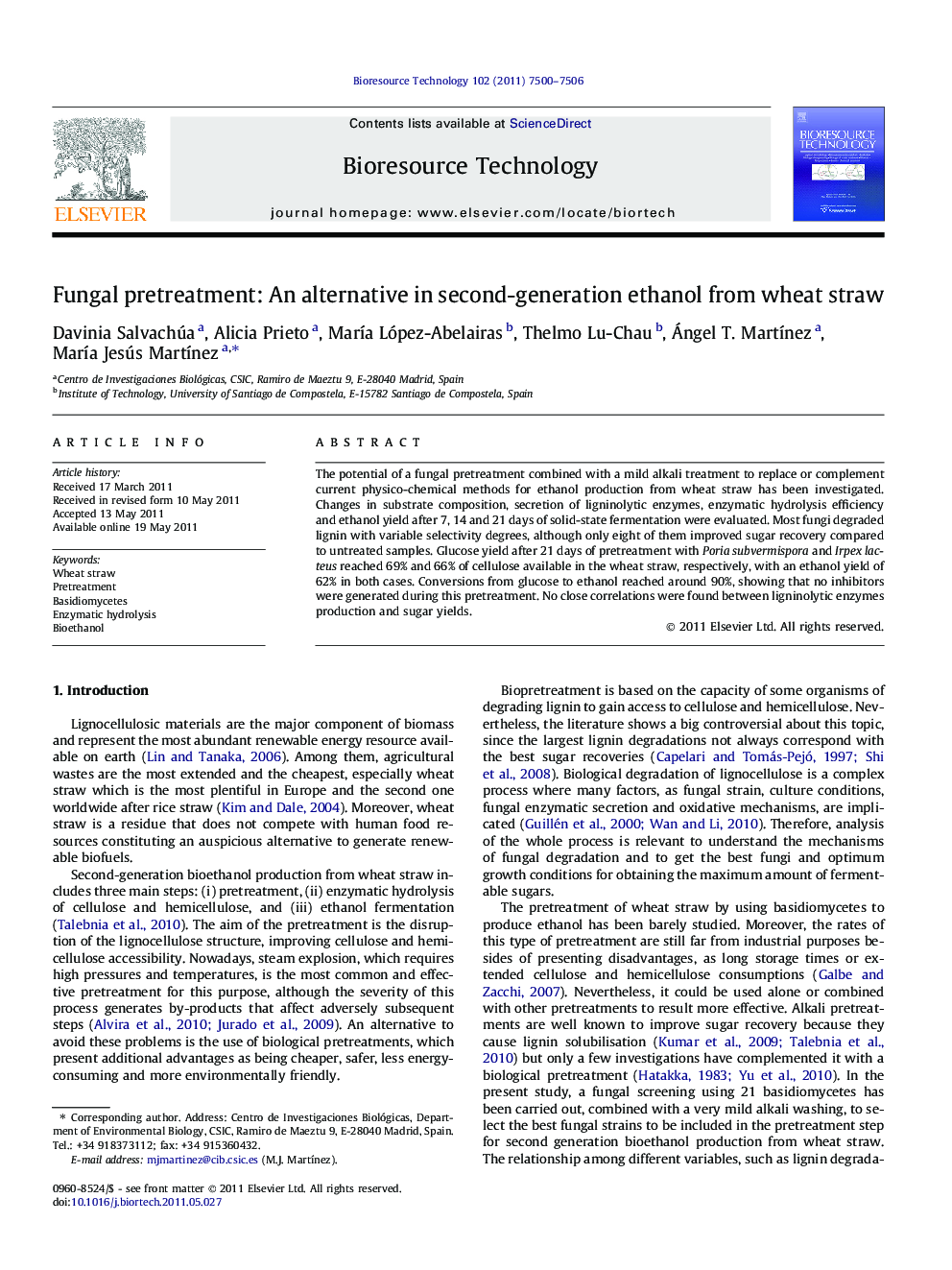| Article ID | Journal | Published Year | Pages | File Type |
|---|---|---|---|---|
| 681843 | Bioresource Technology | 2011 | 7 Pages |
The potential of a fungal pretreatment combined with a mild alkali treatment to replace or complement current physico-chemical methods for ethanol production from wheat straw has been investigated. Changes in substrate composition, secretion of ligninolytic enzymes, enzymatic hydrolysis efficiency and ethanol yield after 7, 14 and 21 days of solid-state fermentation were evaluated. Most fungi degraded lignin with variable selectivity degrees, although only eight of them improved sugar recovery compared to untreated samples. Glucose yield after 21 days of pretreatment with Poria subvermispora and Irpex lacteus reached 69% and 66% of cellulose available in the wheat straw, respectively, with an ethanol yield of 62% in both cases. Conversions from glucose to ethanol reached around 90%, showing that no inhibitors were generated during this pretreatment. No close correlations were found between ligninolytic enzymes production and sugar yields.
► The screening showed that very few fungi were suitable to increase sugar recoveries from wheat straw. ► High glucose yields were obtained with the selected fungi. ► Most of glucose released from pretreated wheat straw was successfully fermented to ethanol using Saccharomyces cerevisiae. ► The results suggest that no inhibitors were generated during the whole process.
